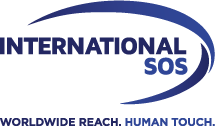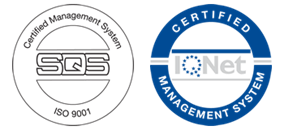Supporting workers offshore
Published: August 2015
THE ARCTIC CIRCLE IS VERY RICH IN OIL AND GAS DEPOSITS. FINDING THESE RESOURCES IS DONE BY VESSELS CARRYING OUT SEISMIC SURVEYS. A NUMBER OF VESSELS ARE CURRENTLY CONDUCTING SURVEYS UNDER LICENCE FROM THE GREENLAND AUTHORITIES.
.jpg?w=100%25&la=en&hash=C9C2CA610E65083742A1DDD7BBF374AAA45043BA)
The northern part of the Arctic is completely frozen between October and May. Survey vessels can only work in the summer months. Even then, the weather can be unpredictable. Mini icebergs can cause huge damage to survey vessels. One crew member is on permanent duty as an iceberg spotter.
As well as operating in extreme weather conditions, the work itself can be potentially hazardous. The work may require underwater cameras and heavy duty welding and cutting equipment. Cranes are used for lifting this equipment and very stringent safety procedures are in place. But the potential for injury and accidents can never be fully eliminated. Hypothermia and exposure are ever-present problems too.
From time to time crew members will fall ill but healthcare is very difficult to access. Survey vessels are often more than two days away from the nearest port. Greenland is as large as Western Europe but its population is only 60,000. With an ice sheet covering the centre of the country, people live mainly on the coast. A ‘port’ could be a village of a hundred people. Its public health infrastructure might be a civilian without formal medical training.
Organisations have to think carefully about how to care for employees in these circumstances. International SOS helps mitigate the risks of working in these locations.
ON-BOARD SOLUTIONS
Work starts before the vessel even leaves port. We screen everyone before they go on-board to make sure they are fit to work. Spotting underlying health issues helps employees and avoids complications later on. Our client, DeepOcean, is one of the leading survey companies in the area. It values these medicals highly as Geir Atle Våg, project Manager at DeepOcean, says: “Pre-deployment medicals are certainly a good investment. They benefit our employees and reduce the operational risk. It’s good for health and brings potential savings.”
We also carry out Extreme Remote Readiness Assessments. We check the vessel, and audit the sick bay, the medic and first aid team and all procedures. The right equipment and medications are put on board to treat a wide range of conditions. A patient with a serious head injury may need intubation and ventilation. We therefore check that at least two days’ supply of intensive care medication and oxygen is on board. “We are basically setting up a mini intensive care unit. It requires a lot of planning and attention to detail,” says Dr Jonathan O’Keeffe, International SOS Regional Medical Director, Northern Europe.
Having the right medical skills on-board is vital. There is no one-size-fits-all solution. We need to take account of the specific skill set and experience of the medic on board. This has to fit with the needs of the vessel and its location. Infectious disease control on board the vessel is also very important. An outbreak of norovirus on a vessel for example can decimate the crew and specialist teams.
DeepOcean adjusts its healthcare provision depending on how far offshore their vessels will be. As Geir Atle Våg explains: “We normally have a medic on-board for any offshore operations. In remote locations we have introduced telemedicine and added a doctor to the medical team on-board. This helps assure the health and wellbeing of our employees in these locations.”
STAYING IN TOUCH
If an incident does occur, vessels can count on the latest technology for specialist support. Our team of specialists at the London Response Centre can be accessed by vessels 24/7. Video communications enable doctors to see how a patient is breathing, their colour and how they are moving. Or they can examine a rash to diagnose if it is eczema or measles. Measles is a contagious disease which can have a serious impact in remote locations.
Dr O’Keeffe enjoys the challenges of supporting these extreme locations and says, “It’s very exciting to see the new solutions TeleHealth continues to bring. As the technology gets better, more and more data can be transmitted on low bandwidths. It gives us the opportunity to build a healthcare solution that optimises costs, meets HR requirements and maximises a client’s productivity.”
Geir Atle Våg equally appreciates the benefits of these technologies. “TeleHealth ensures that any expertise not available physically on the vessel can still be available. It can support the medical team on board in any given situation. TeleHealth equipment is moving towards being standard on offshore vessels.”
LOCAL KNOWLEDGE
The Response Centre, part of the Assistance Centre infrastructure, helps medics with immediate treatment and stabilisation. It also works behind the scenes when medical transportation is needed. It communicates with those onshore to prepare for the vessel’s arrival. In Greenland the patient might go to the Upernavik Hospital for treatment. More serious cases might be transported to Nuuk, Greenland’s
capital and major airport. Onward transportation is arranged, to Copenhagen or another centre of medical excellence.
In practice, medical transportations are rare.
In three years we have only had to carry out one. All other cases – around 100 of them – have been dealt with on-board. This not only helps the patient, it saves valuable local medical resources too. Dr O’Keeffe concludes: “Numbers of people working in remote locations are increasing, not just in the oil and gas industry. Our offshore experience is very valuable for our work in other areas. The integration of staffing, supplies, TeleHealth and topside support is critical to our success. It’s
a seamless integrated solution that reduces risk.”
Geir Atle Våg agrees: “Being well prepared and having systems, expertise and equipment in place is a big help. Having an escalation procedure builds confidence and ensures that operations can be carried out in remote locations in a safe manner. Working with International SOS brings those benefits.”
ALL-ROUND CARE
Companies working in this area are highly conscious of the need to protect the environment. They follow strict procedures to avoid any possible contamination. They look out for local wildlife too. One crew member is on constant watch as a ‘mammal spotter’. Their job is to look out for polar bears, dolphins, whales and other large mammals. Vessels stay well away from them and avoid lowering any equipment overboard in their vicinity. It is all about attention to detail.










